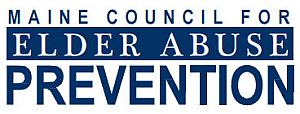Mission:
To create and encourage a social, political, and economic environment in which domestic violence no longer exists, and to ensure that all people affected by domestic abuse and violence are supported and that batterers are held accountable. MCEDV mobilizes and coordinates community action through a statewide network of domestic violence projects. Through these partnerships, we focus our resources on public policy, education, and systems advocacy.
General Description of Services:
MCEDV member projects provide the following services:
24-hour helpline: Each domestic violence project encourages people dealing with abuse, community members trying to help someone, or social service providers to use the hotline covered by staff and trained volunteers. People can receive help safety planning, information about options, crisis counseling, emotional support and advocacy.
Temporary emergency shelter and transitional housing: The availability of shelters, safe homes, and transitional housing units is critical to the safety of those who might otherwise remain in or return to abusive situations due to lack of economic and housing alternatives.
- Referrals and information: Referrals and Information about community resources are available to meet the special needs of individuals.
- Court advocacy: Advocates help with Protection from Abuse Orders and Parental Rights and Responsibilities and Pro Se Divorce forms. Other services are available contact your local project.
- Support groups: Survivors share their problems, offer encouragement in making difficult life choices, and provide support toward personal growth. These groups offer safety planning information, encouragement, hope and strength.
- Batterer’s education groups: Forty-eight week behavioral change educational programs certified and monitored by the Department of Corrections to help batterers examine controlling behaviors and their belief systems, which batterers use to give themselves permission to abuse. The goal of Batterers’ Intervention Programs is to work toward the safety of victims and hold batterers accountable for their actions.
- Outreach and community education: Community Education strategies influence community norms as well as increase public awareness about specific issues and problems related to domestic abuse, attract community support for other program efforts, reinforce the necessity for healthy relationships, and keep the public informed about program progress. Training is available for law enforcement agencies, schools, social service providers, faith communities, judicial system personnel, medical professionals, businesses, and state and local entities.
- School based education: Each project has designed their program to educate and inform youth and adults about the issue of Teen Dating Abuse as well as what is healthy and unhealthy behavior in relationships.
- Specialized children’s programming: Contact your local project to find out what specialized programs they offer for children exposed to domestic violence.
- Public policy: MCEDV advocates on behalf of battered women through policy development and legislative initiatives that support battered women and hold batterers accountable.
Area served:
State of Maine
Elder Abuse Related Services:
MCEDV member programs offer support for victims of elder violence and abuse. Advocates providing support to victims of domestic abuse of all ages are available, as well as, an array of services including, but not limited to safety planning, shelter, support groups, transitional housing, community education and training. Advocates can be contacted through the Statewide Domestic Violence helpline, 1-866-834-4357.
Contact Person:
Francine Garland Stark
francine@mcedv.org
24 Hr Helpline:
State of Maine: 1 (866) 834-HELP
National hotline: 1 (800) 799-7233 or 1 (800) 787-3224 (TTY)
Fax: (207) 430-8348
General Inquiries: info@mcedv.org
